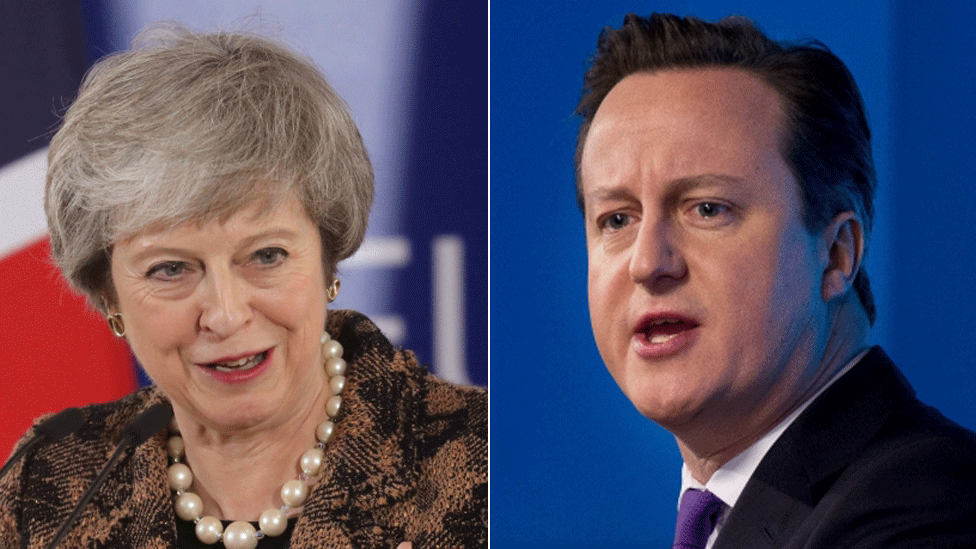Brexit: A day of Parliamentary shenanigans
- Published
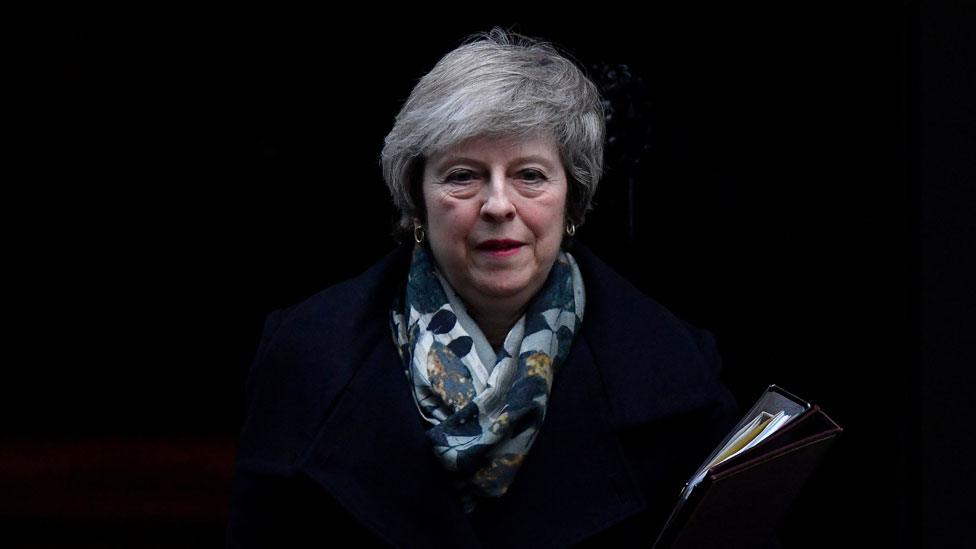
If you are that way inclined, stick a copy of Erskine May, the Parliamentary procedure bible, on your Christmas list - if it's not too late.
Because this week, and likely in the early weeks of next year, you might need it.
A pattern is becoming more and more distinct that shows the many rival factions in Parliament sweating to find the latest, the most cunning, the most expeditious procedure to try to get their way - whether that's the opposition, or disgruntled Tories, both in different ways making life tricky for the government.
We've just witnessed another case in point. Jeremy Corbyn was, we were told, going to lodge an attempt to force a no confidence vote, simply in the prime minister, in fury that she had delayed Parliament having a say on her Brexit agreement.
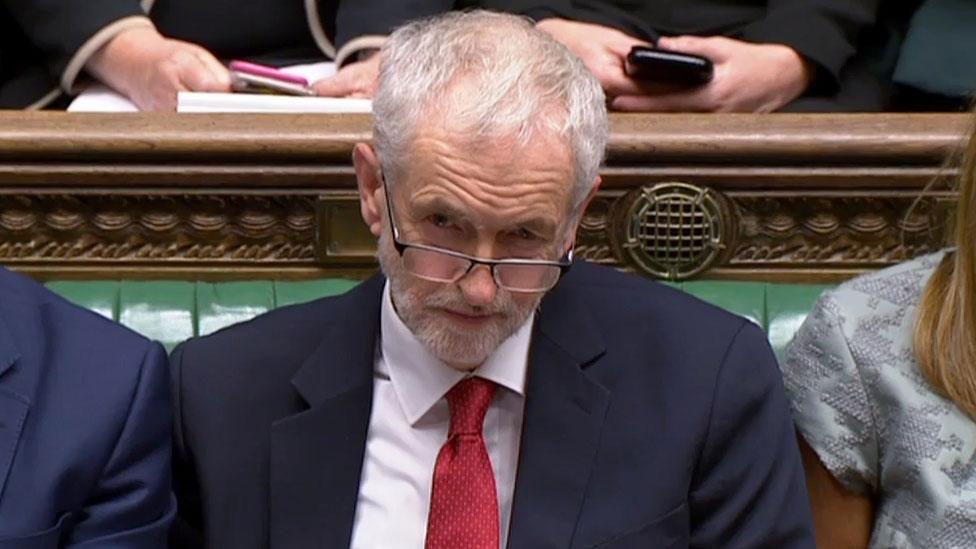
That's not, as you understand, the scary sounding no-confidence motion of old that could collapse a government.
But a vote only on her credibility, and that alone, which if lost, of course, would be enormously embarrassing. But (depending which expert you believe) which would only have the power to embarrass, not do anything else.
Except, only an hour after the leader's office let us know that was coming, the prime minister announced a timetable for the vote on her big Brexit compromise.
This wasn't a huge surprise as it was anticipated in the press some days ago. But nonetheless it seemed to take Labour by surprise.
Because the Jeremy Corbyn threat of a confidence motion in her was not, at that stage, forthcoming.
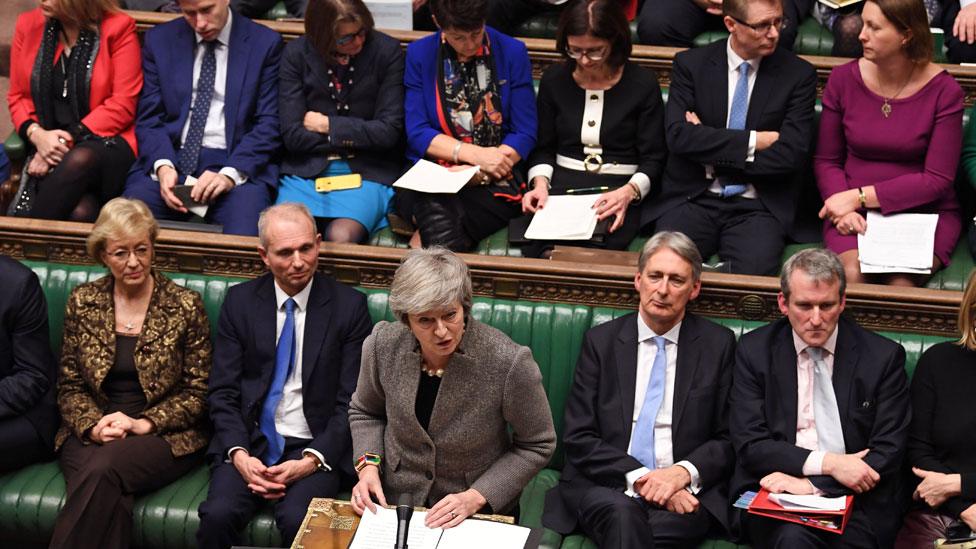
Spin forward an hour or so and his close ally John McDonnell was doing the rounds, celebrating how they had forced her to give a timetable at last. Yet, then just before 6pm, after the anger of backbenchers was apparent on all sides, the Labour leader decided to go for it after all.
Then within a couple of hours, both the Tory Brexiteer group the ERG and the DUP, their supposed allies, went public to say they would back the PM.
The chances of Labour winning their vote were fading fast. You might have thought that would therefore give the government a chance to, as one Tory MP suggested, "rub Corbyn's nose in it".
And then just after 9pm Number 10 sources made it clear they won't allow the debate anyway, saying Labour are just "playing silly political games".
Confused by Brexit jargon? Reality Check unpacks the basics.
Not to be outdone, the other opposition parties have just added a final twist, by putting down an amendment to the Labour motion (which, remember, won't be debated now) that would - if then it was selected by the Speaker in this fantasy debate - upgrade the vote to a real, full-blown motion of confidence in the government.
Keeping up? I don't blame if you if it all seems like procedural nonsense.
And frankly, you might not be completely wrong. But what it suggests is that despite widespread frustration on all sides, Jeremy Corbyn is so far stopping short of taking a real shot at toppling May's administration, and is unlikely to do so unless and until he thinks he can win.
For her part, Theresa May is unlikely to budge on her plan, unless and until she is forced to do so.
To the immense irritation of both their supporters and their rivals, even though the Brexit clock is running down, neither of the main party leaders are willing to take the kind of radical move that might unblock the gridlock.
Parliamentary shenanigans are no substitute for the decisions that may have to be taken in a matter of weeks.
- Published17 December 2018
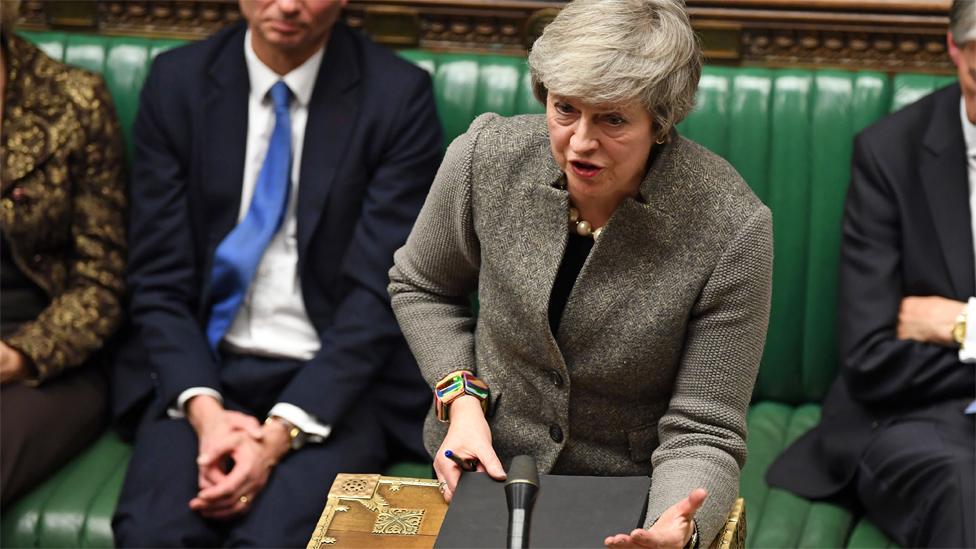
- Published17 December 2018
